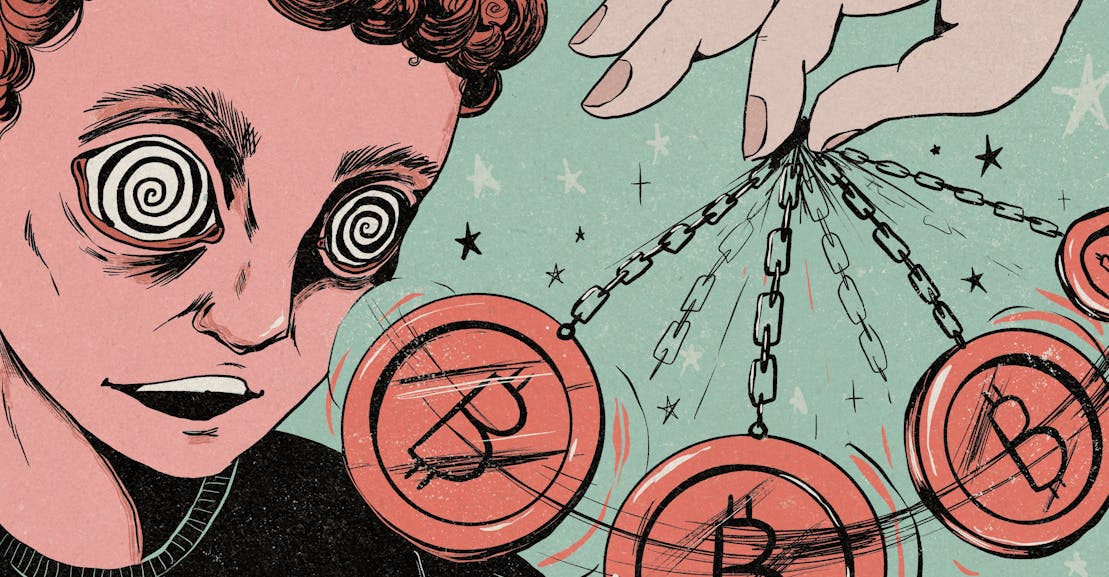Cipher numbers may not be reliable, depending on some studiesUp to 90% of exchanges on most exchanges, it’s “wash trading”: bogus trades designed to generate a false impression of volume, which in turn attracts more traders and influences prices. But the numbers we have, while rough, reflect a booming industry defined in large part by volatile speculation and fraud. In 2021, consumers spent approximately $25 billion on non-fungible tokens, or NFT (a crypto sub-industry in which wash trading is also rampant). During the same period, DeFi scams stole more than $10 billion. The crypto industry has seemingly endless money (some endorsement deals involve crypto or company equity) to splash on stadium naming rights, ads with Matt Damon and LeBron James and talent in the tech industry. Mirroring aspects of multilevel marketing, in which participants are forced to bring new suckers through the door, crypto is both the leading get-rich-quick scheme of our time and the mistrust of many. This dissonance – where a potential financial opportunity, even when sold in a deceptive manner, meets extreme risk – is a hallmark of the golden age of fraud.
A brief overview of consumer data and government reports shows that now is the time to be a crook. Catfishing – a quarter of all fraud reported at the Federal Trade Commission last year was born on social media – to identity theft, ransomware and old-fashioned phone scammers trying to extort banking information from the elderly, there seem to be ever-increasing varieties of scams and ways for criminals to extract payment. With the pandemic pushing people to spend more time (and money) online, crypto wallets and PayPal login credentials have become juicy targets alongside credit cards and social security numbers. ‘The pandemic has created so many more points of vulnerability,’ insurance company CEO says told CNBC Last year. While Forbes the article was not a big shake-up, Heather Morgan clearly understood that circumstances had changed and could favor criminals like her.
The golden age of fraud has seeped into the culture for years now. One of the most popular current shows on Netflix is about Anna Delvey, a con artist who defrauded a range of wealthy Manhattanites, as well as banks and hotels, and garnered her own legion of fans after her arrest. In California, Elizabeth Holmes awaits her legal fate for running the multi-billion dollar Theranos scam. From WeWork’s reckless spending to the Sackler family’s deadly opioid push, corporate America has decided that the normal rules, and perhaps the law, don’t apply. The Republican Party, bereft of ideas beyond the angry culture war, remains in the grip of former President Donald Trump, the nation’s most stubbornly successful crook, whose new media venture may , for now at least, is worth billions despite having almost no assets or income. . (Trump’s recalcitrant new social network, Truth Social, is just a revamped version of Mastodon, an open source social media platform.)
In the golden age of fraud, the scam sits comfortably alongside the general sense of unreality that pervades the American economy. JPEGs sell for millions of dollars and are denominated as a new asset class, despite the many practical and philosophical problems that accompany them. Short-lived meme stocks and dog-themed crypto tokens are outperforming deep-pocketed companies that actually, you know, make stuff. The richest man in the world, Elon Muskowes his fortune to a subsidized by the state electric car maker that produces far fewer vehicles than its competitors but is worth more than almost all of them combined. (Although it must be said that Musk’s rivals are often not much better: Volkswagen, the world’s second-largest automaker by revenue, has cooked the books for years in rigging emissions detection software.)

